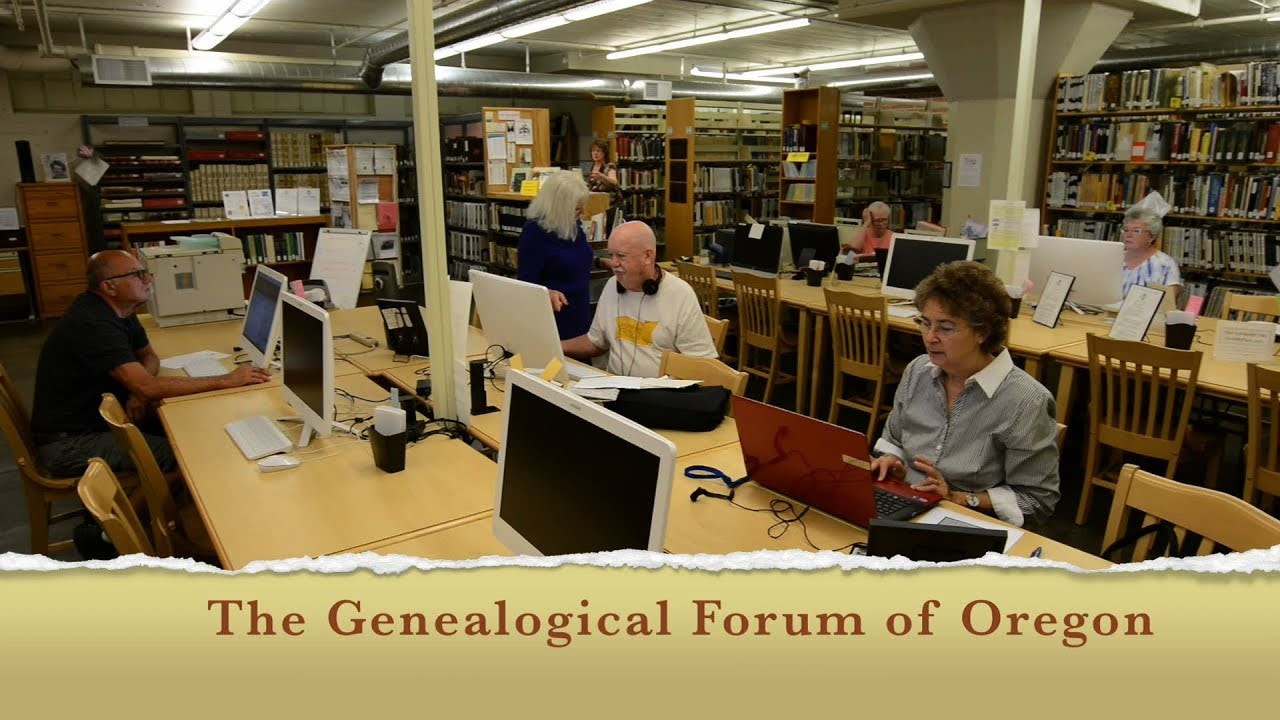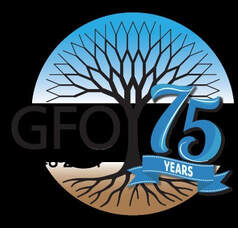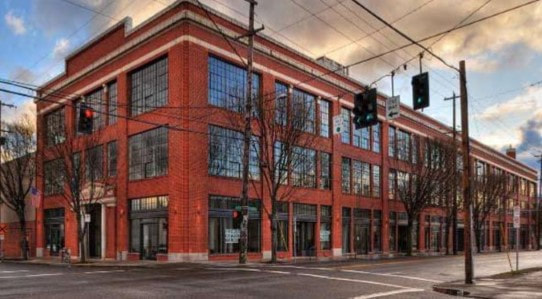 A resource to create more interesting family histories with resources to find missing family members and give historical context to the family’s story! Portland, Oregon has a library you want to check out and take advantage of – the Genealogical Forum of Oregon, the largest genealogical library in the Pacific Northwest. In 2014, I began a Personal Historian business. Gerry Lenzen, whom I knew through our mutual involvement in the Portland State Athletic Department Booster program, suggested that I meet with his wife, Connie Lenzen, for advice. We met at the Ford Building at the corner of SE 11th and Division, where the Genealogical Forum of Oregon is nestled in the basement. After a coffee in the café on the main floor where she gave me some very sound advice on setting up my business, she took me down to the library and gave me a tour. I was amazed at the collection of research books, family histories and books of historical context of Oregon and beyond. In the front of the area are several computer stations where people can access the on-line data bases for research, then there are the “library stacks” of books for reference. In the back is the meeting area for the Interest Groups and classes to be held, with the map library nearby. Different treasures are tucked in corners, along with some work spaces for big projects being worked on by the volunteers. One group of volunteers have taken on the project of scanning family records that are brought to them and cataloging them for future historical research. This helps the information be saved and available to a wider audience for future projects, without the organization outgrowing the location too quickly. Another group produces the Bulletin of the Genealogical Forum of Oregon, a quarterly, historical journal with articles written by members that include memoirs and personal essays, problem-solving techniques, travel, how-to pieces and using technology. It also includes book reviews and posts from blogs in the industry. The primary purpose of the organization is to educate, to record, and to preserve genealogical and historical records and information. The objectives are to create an interest in genealogy, to instruct in research, and to share, compile, and publish genealogical and historical materials. They take their purpose very seriously and I appreciate all they have shared with me. The 501(c)3 non-profit organization is completely run by volunteers. I can attest to the volunteers’ commitment to help visitors locate the best way to find the research tools they can use for their project. Every time I have gone to the library, I was greeted by a volunteer who inquired what I was looking for, helped me get started, and then would check in on me to make sure I was doing okay. The GFO Research Library has more than 52,000 holdings for all of the United States and many locations around the world, with particular strengths in the Pacific Northwest, Virginia, and French Canada. Surprisingly, the extensive Oregon section is only about fifteen percent of the collection. I originally found the GFO library to research my father’s father in the collection of Portland City Directories. Now I am looking in the Directories for the home owners’ addresses of the buildings my father’s paternal grandfather designed. A long time ago I went to the Oregon Historical Society to do my research in the Directories, but now I go here. With the complete Portland City Directory collection at this facility it feels more accessible to me and I appreciate the social environment of encouragement and bravos being freely distributed. The GFO is a membership organization. Member benefits include unlimited access to the library and GFO resources during open hours. The day use fee for non-members is $7, except for the first Monday on the month when guests can visit the GFO for free (after the pandemic closure ends). During the pandemic, GFO members have received online access to Ancestry, Fold3, HistoryGeo, and American Ancestors from home. Members are also able to request unlimited free lookups in the library and personal research assistance during the pandemic closure. The GFO has even begun to make some of the library holdings available digitally online. Free study groups and classes are still being given through Zoom meetings. I enjoy going to a once-a-month writing group meeting and have recently joined a German Interest Group. It has really been interesting to hear what the other members have written, some after extensive research, and the rich feedback they’ve given me on the pieces I’ve read to them. As told on the organization’s website, “the Genealogical Forum of Oregon was founded by three members of the Daughters of the American Revolution in 1946 for the purpose of promoting genealogical research through education and providing tools, assistance, and offering expertise to its members. In 2011, the GFO moved to its present location in the historic Ford Building at Southeast Eleventh Avenue and Division Street. To learn the rich history of the group go to https://gfo.org/who-we-are/mission.html. I encourage anyone reading this article to check out the Genealogical Forum of Oregon. I have mentioned only a small part of what happens in this organization. We are celebrating our 75th Anniversary, and a Virtual Open House (https://gfo.org/learn/open-house.html) will be held from March 27 through April 23. This virtual tour is a great way to check out the organization and get a sampling of the education they offer. Plans are being formulated on how to re-open the facility in a safe way so people will be able to actually research in the space. Go to www.gfo.org and find out more about this vibrant organization and future updates on when it will once again be open to people being there in person. Connie Shipley, Capturing Your Life Stories
0 Comments
|
Details
MY BLOGArchives
October 2021
Categories |


 RSS Feed
RSS Feed